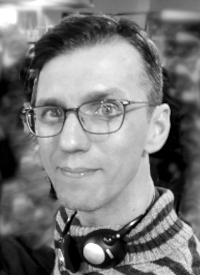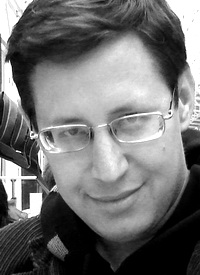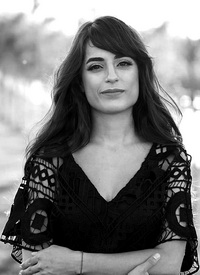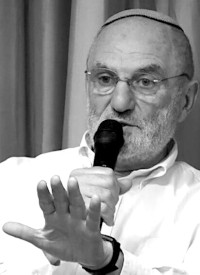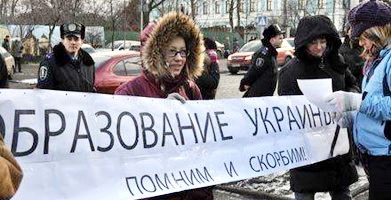
In Russian there is the expression “Spanish shame”. It came from English, and means a sense of personal shame for the words and actions of other people. Faced with attempts to discriminate against the Russian language in Ukraine, listening to the speeches of Speaker Andrey Parubiy, reading the posts of Farion and Nitsoy, inciting hatred against Russian-speaking citizens, I often feel this specific awkwardness, although we have nothing in common with these chauvinists, and it’s as if I shouldn’t be held responsible for their actions.
Of course, this has nothing to do with Spain, where at least they tried to find a democratic solution to the language problem – to the point where I saw tourist booklets in Madrid with inscriptions in “castellano” were duplicated with translations into Catalan, Basque, and even Galician. So I call this unpleasant feeling “my Ukrainian shame” – and I had to experience it again after the vote of the deputies of the Verkhovna Rada, who adopted an unconstitutional law on exclusive rights for the only state language of Ukraine.
It would seem that this law does not threaten me in any way. Ukrainian – on an equal footing with Russian – is my native language. I grew up in a Ukrainian family, and in the village of my relatives they speak only Ukrainian – and it is not even the literary language of the Dnieper region, but the Polesian dialect, saturated with dialecticisms and polonisms. I started learning Ukrainian since childhood, in a good Soviet school, where teachers carefully instilled in us love for Ukrainian classics. And in the library of my parents there were a lot of Ukrainian-language books, including new things from Ukrainian authors and foreign literature, which was then mass published in various publishing houses, duplicating Russian translations of Shakespeare, Cervantes, Dante, Balzac, Goethe, Henryk Sienkiewicz, or Mark Twain.
“Concerning the question of language policy in the Ukrainian Soviet Socialist Republic. Propagandists of the current party in power like to talk about how poorly the Ukrainian language was treated in the USSR. During my childhood there were two fully Ukrainian-language TV channels. That’s TV channels, but let’s take an interest in the numbers of circulations that published books of Ukrainian writers. My grandfather was a journalist, his journalistic essays were published in modest numbers for those times: India – 31,000 copies, Japan – 49,690 copies, Australia – 65,430 copies. Most modern Ukrainian-speaking writers did not even dream of such numbers,” said the Kiev journalist Aksinya Kurina.
I have written many different texts in Ukrainian, sometimes I compose poems in it, with pleasure I learn old Ukrainian songs. And I also lead the online project “Ukrevkult” in order to preserve the legacy of the half-forgotten writers and poets of the first half of the last century who do not fit into the ideological framework of Kirilenko and Vyatrovich. Ukrainian nationalists seem to act in my interests – because they hypocritically explain their actions by referring to the need to protect the indigenous Ukrainian-speaking population. However, I am ashamed of their shameful law – because the linguistic initiatives of the nationalist authorities artificially violate the rights of my Russian-speaking compatriots in favour of “titular” Ukrainian citizens.
Having visited all the regions of Ukraine, I met people everywhere who were raised and lived in a historically Russian-speaking environment. And the fact that they are deprived of the opportunity to use their native language – in state service, in education and the public sphere, in book publishing, the media, in cinema and theatres – seems to me to be highly offensive and unfair. After all, our state patriots follow the logic of the Ems Decree and the Valuev Circular, which were used during Tsarism to shamefully discriminate against the Ukrainian language – but were never able to crush it.
The policy of South Africa’s apartheid regime was just as much of a dead-end. It forcibly imposed Afrikaans as the only language of schooling – under racist slogans strikingly consonant with the discriminatory rhetoric of the Ukrainian right-wing. In Soweto, we visited a memorial in memory of the young people who had fought against it, who were shot by the police. And then apartheid collapsed, and now there are eleven equal state languages in this country – and the locals determine which of them their children will learn.
The language law became the apogee of the nationalist course that was followed after Maidan by a multilingual and multicultural country, and is a landmark result of this permanent drift to the right. The anti-communist Ukrainian government has come to deny the fundamental principle of bourgeois democracy, embodied in the slogan: “freedom, equality, brotherhood” – as a complement to the growing social oppression. Taxpayers are formally equal before the constitution – regardless of language, faith, or political views. However, they persistently want to turn Russian-speaking citizens into third-class people. The language law defiantly puts the Russian language in the very last place – even after the languages of the EU countries spoken by our white masters. And freedom and brotherhood, as if in ridicule, have long turned in Ukraine into the names of far-right parties [“Svoboda” and “Bratstvo” – ed], which actively advocate discrimination against Russian speakers.
All of this was quite predictable – although five years ago people with kind faces merrily laughed when they were warned that the new government would strip the people to their skin, divide society, restrict freedoms, untie the hands of Nazis, introduce censorship, rewrite history, demolish monuments, rename streets and cities, and displace the Russian language from society. However, these obvious forecasts of the Ukrainian future have invariably been heard among the Russian-speaking liberal intelligentsia and labelled as funny Kremlin horror stories. And even now this category of Ukrainian patriots shoots itself in the foot, supporting the limitations of the language that it itself writes and speaks in.
“The adoption of the draconian law on languages. A law violating the article of the Constitution of Ukraine that I revere. A law contrary to the will of 75% of the population of Ukraine. A law that imposes mono-ethnic archaism on the people of the 21st century through an antediluvian Parliament and thus divides the country and definitively pushes away Donbass. I am shocked at how quickly my Russian-speaking literary colleagues started to fall back into the snare of ethnic fear. Is it cowardice as trauma?” asks the Kiev poet Evgeniya Bilchenko.
But this is not so much about “Spanish shame” as it is about “Stockholm syndrome”, when victims become protective of their aggressor.
Andriy Manchuk
Translated by Angelina Siard
-
Історія
Африка и немцы - история колонизации Намибии
Илья Деревянко история колонизации Намибии>> -
Економіка
Уолл-стрит рассчитывает на прибыли от войны
Илай Клифтон Спрос растет>> -
Антифашизм
Комплекс Бандеры. Фашисты: история, функции, сети
Junge Welt Против ревизионизма>> -
Історія
«Красная скала». Камни истории и флаги войны
Андрій Манчук Создатели конфликта>>

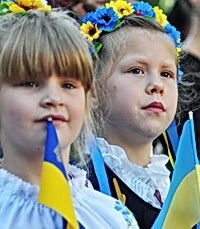
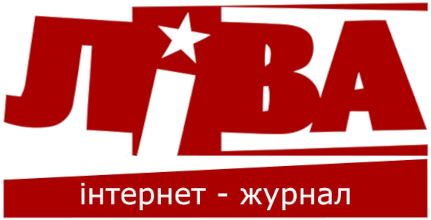










 RSS
RSS
